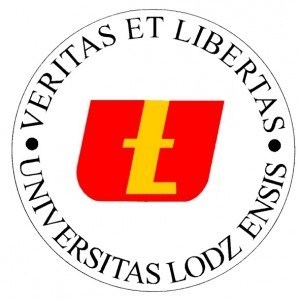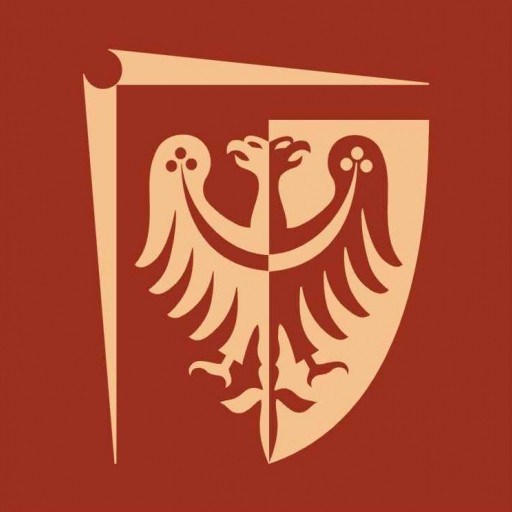The Spatial Development and Planning programme at the University of Lodz offers a comprehensive education designed to equip students with the essential knowledge and skills necessary for effective land-use management, urban development, and regional planning. This interdisciplinary programme combines aspects of geography, architecture, urban studies, environmental science, and public policy to prepare graduates for professional careers in spatial planning, urban design, environmental protection, and sustainable development. Throughout the course, students learn about various planning processes, legislative frameworks, and innovative strategies to promote balanced and sustainable territorial development. The programme emphasizes the importance of integrating social, economic, and ecological considerations in decision-making processes to ensure the creation of functional, attractive, and environmentally friendly urban and rural areas. Students engage in practical exercises, case studies, and fieldwork that foster a deep understanding of spatial analysis, geographic information systems (GIS), and cartography. They also gain insight into the challenges faced by contemporary cities and regions, such as housing shortages, transportation infrastructure, environmental hazards, and social inequalities. The faculty at the University of Lodz includes experienced professionals and researchers committed to providing high-quality education and fostering critical thinking, creativity, and ethical standards among students. Graduates of the Spatial Development and Planning programme are well-prepared to work in urban and regional planning offices, local governments, environmental organizations, development agencies, and consulting firms. They can contribute to sustainable territorial development, urban renewal projects, regional policy formulation, and environmental conservation initiatives. Additionally, the programme encourages students to pursue further research or postgraduate studies, opening doors to academic careers and specialized expertise in spatial planning disciplines. Overall, this degree aims to develop versatile professionals capable of influencing local and global development processes, promoting sustainable growth, and enhancing the quality of life in communities worldwide.
The Spatial Development and Planning program at the University of Lodz is designed to equip students with comprehensive knowledge and practical skills necessary for effective land use analysis, urban and regional planning, and sustainable development. The curriculum covers a broad range of topics, including geographic information systems (GIS), urban design, environmental management, transportation planning, and policy analysis, preparing graduates to address complex spatial challenges in various sectors. Throughout the program, students engage in interdisciplinary projects that foster critical thinking and innovative problem-solving abilities, enabling them to develop strategic plans that promote balanced socio-economic growth while preserving natural resources. The program emphasizes both theoretical foundations and real-world applications, facilitated through seminars, workshops, and internships with local government agencies, consulting firms, and environmental organizations. Students learn to utilize modern planning tools and software to create detailed spatial analyses and proposals, ensuring they are well-versed in the latest industry standards. Additionally, the program encourages international cooperation and exchange, offering opportunities to participate in study trips and collaborative projects with universities across Europe. Graduates of the Spatial Development and Planning program acquire the competencies needed to pursue careers in urban and regional planning, environmental consultancy, spatial policy making, and development project management. The program aims to produce professionals capable of contributing to sustainable development initiatives at local, national, and international levels, supporting the creation of resilient, inclusive, and vibrant communities. With a strong emphasis on research, professional ethics, and lifelong learning, students are prepared to meet the evolving demands of the planning profession in a rapidly changing world.
Candidates holding higher education (Bachelor) diplomas or Master degrees may apply. A transcript of records showing the subjects/grades and a certificate of proficiency in English for foreigners (unless the first degree was taught in English) are required. For detailed information about the admission procedure please visit:
www.iso.uni.lodz.pl
Funding for the Spatial Development and Planning program at the University of Lodz typically includes a combination of public and private sources. The program is primarily financed through the university’s core budget, which is supported by government funding allocated by the Polish Ministry of Education and Science. These funds cover the operational costs, faculty salaries, and academic resources necessary for the curriculum's delivery. Additionally, the university may secure funding through European Union (EU) grants aimed at supporting higher education development, research activities, and regional development projects related to spatial planning. Such grants often promote innovative teaching methods, international collaboration, and the integration of practical experiences into the curriculum.
Students may also have access to various scholarship schemes offered by the university, including merit-based scholarships, social scholarships, and financial aid programs designed to support students from different backgrounds. These scholarships are funded by the university’s own resources, as well as governmental and EU sources. Furthermore, there may be opportunities for students to participate in applied research projects sponsored by regional authorities or industry partners, which can sometimes include stipends or project-based funding.
The university encourages international cooperation, which can lead to joint funding initiatives and exchange programs that may subsidize student mobility costs. In addition, some students might pursue external funding opportunities through private foundations, local government programs, or international organizations involved in urban development and spatial planning.
Overall, the financing structure of the program ensures that students have access to high-quality education while supporting faculty research and regional development initiatives. The combination of public funding, grants, scholarships, and external sponsorship creates a sustainable financial environment, fostering the growth and modernization of the program to meet contemporary needs in spatial development and planning.
The Master's Degree in Spatial Development and Planning at the University of Lodz offers students comprehensive education and training in the field of spatial planning, urban development, and management of territorial resources. This programme is designed to equip students with both theoretical knowledge and practical skills necessary for addressing complex challenges related to urban and regional development, sustainable planning, land use, and environmental protection. The curriculum typically covers a broad range of topics including spatial analysis, geographic information systems (GIS), urban design, environmental impact assessment, policy making, and legal aspects of spatial planning. Students gain insights into how to develop effective strategies for sustainable development, support local governments, and contribute to the creation of functional, aesthetic, and environmentally friendly urban and rural spaces.
The programme emphasizes an interdisciplinary approach, integrating knowledge from geography, architecture, environmental sciences, and public policy to prepare graduates for work in various sectors such as local government agencies, consultancy firms, environmental organizations, and private development companies. Students are often encouraged to undertake internships or practical projects to apply their learning to real-world problems and develop a portfolio of original work that demonstrates their problem-solving capabilities. Additionally, the programme may include fieldwork components, seminars, and workshops led by academics and professionals who are experts in the field of spatial planning.
Graduates of this program are well-prepared to pursue careers as urban planners, regional development specialists, environmental consultants, or project managers involved in planning and development projects. The University of Lodz ensures that students are proficient not only in technical skills but also in communication, teamwork, and ethical practices necessary in the professional field. The programme aligns with European standards and often includes components related to EU spatial development policies, regional development strategies, and international cooperation projects. Overall, the Master’s in Spatial Development and Planning at the University of Lodz provides a solid foundation for contributing to the sustainable and efficient development of urban and rural areas, addressing contemporary spatial challenges in Poland and Europe.








